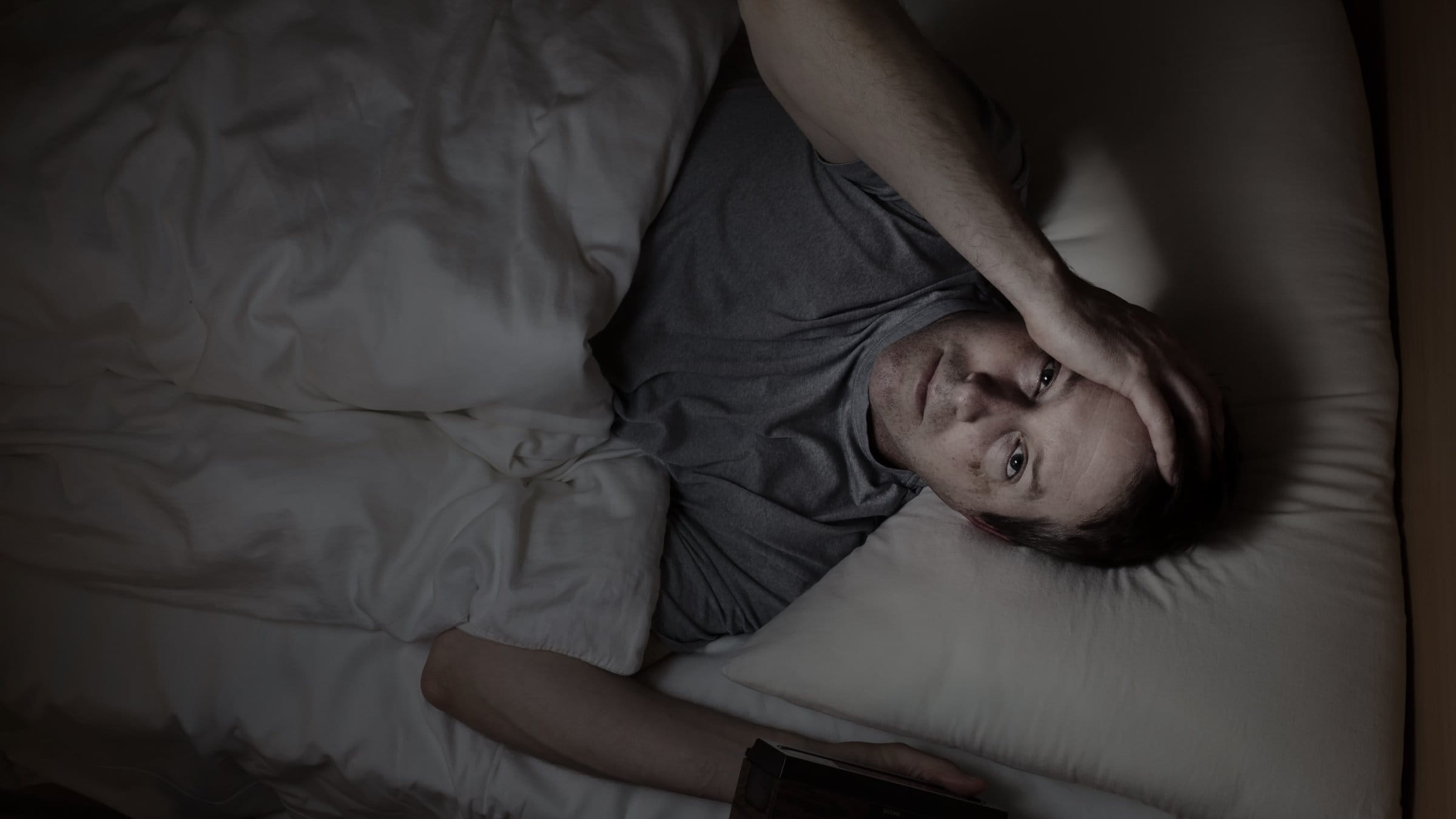
Do you find yourself always waking up in the middle of the night or much earlier than you wanted to? This common issue is insomnia, but there are several types of insomnia that can affect your sleep differently.
Here are some reasons this could be happening, and ways to make it stop:
Why it might be happening
Your sleep patterns
Our sleep pattern mostly depends on our circadian rhythm and homeostatic sleep drive (the bodily mechanism that regulates sleeping/waking rhythms).
Throughout the night, our sleep cycles between rapid-eye movement (REM) sleep and non-REM sleep. Each stage of sleep has a different threshold for how easy it is to be woken up. One likely explanation for waking up at the same time each night is that you go to sleep at the same time and then, at the same time each night, you reach a light stage of sleep and wake up.
We’re also more likely to remember waking up if it’s closer to the time we normally get up for the day.
Anxiety or depression
Stress can make it hard to get to sleep in the first place (that’s called sleep-onset insomnia). But anxiety can also cause you to have trouble staying asleep, waking up in the middle of the night and having trouble getting back to sleep (called middle insomnia, or sleep-maintenance insomnia).
Terminal insomnia, which happens when you wake up too early or before your ideal wake-up time and just can’t fall back asleep, can be a sign of depression.
Your stomach
Experiencing acid reflux or just being too hungry or too full can lead to nighttime awakenings.
Hormones and blood glucose levels
Waking up often in the night could signal that your hormone or blood glucose levels are fluctuating. If you have diabetes, check with your doctor to ensure that your blood sugar is properly controlled throughout the night.
Other medical causes
Your frequent wakeups could be signaling something else entirely, which is why it’s important to check with your doctor if this happens too often. Depending on the possible cause, they might have you do a sleep study. Sleep apnea, menopause or thyroid dysfunction are among other medical causes for nighttime awakenings.
Is it normal?
Most of us wake up at least once a night but should be able to return to sleep with little effort.
If you’re waking up for prolonged periods at least three nights a week, and it continues for at least three months and results in your being unable to function properly during the day, then this is called chronic insomnia.
Having chronic insomnia is different from just being a short sleeper — some people are able to function well and feel refreshed after regularly sleeping six or fewer hours each night.
If your awakenings occur at least three nights a week for at least three months and result in daytime impairment, check with your doctor. It helps to keep a journal about these awakenings and how you feel when you wake up. Try answering some of these questions:
- Did you have a nightmare?
- Are you too hot or too cold?
- Are you having hot flashes or heart palpitations?
- Are you hungry or did you eat too much?
- Did you take a nap earlier or otherwise change your sleep routine?
How can I keep these awakenings from happening?
Besides keeping a journal and talking with your doctor about your concerns, it’s important to practice good “sleep hygiene” to get good sleep quality.
Try these sleep hygiene tips:
- Keep a regular sleep schedule and relaxing bedtime routine.
- Avoid caffeine in the afternoon and evenings, and avoid alcohol right before bedtime.
- Avoid nicotine and certain medications, such as benzodiazepines, that can cause withdrawal symptoms during sleep and lead to waking up.
- Stay active during the day to build your sleep drive and increase your chances of sleeping through the night.
- Avoid spending too much time in bed; most people need just seven to nine hours of sleep, and the bed should be limited to sleep and romance.
- If something is bothering you, write it down and schedule worry time for the next day. Some people find that talking to a counselor or practicing relaxation techniques, such as mindfulness, can help achieve better sleep. How can I keep these awakenings from happening?
Should you be using sleep aids?
There are many options on the market for sleep aids, including melatonin, your body's hormone that regulates your internal clock. Taken as a medication, melatonin can promote more sleep. The American Academy of Sleep recommends sleep aids only in conjunction with behavioral modifications to treat chronic insomnia.

Take charge of your sleep
Learn more about the causes of sleep disorders and treatment options available at Ohio State
Take charge today




